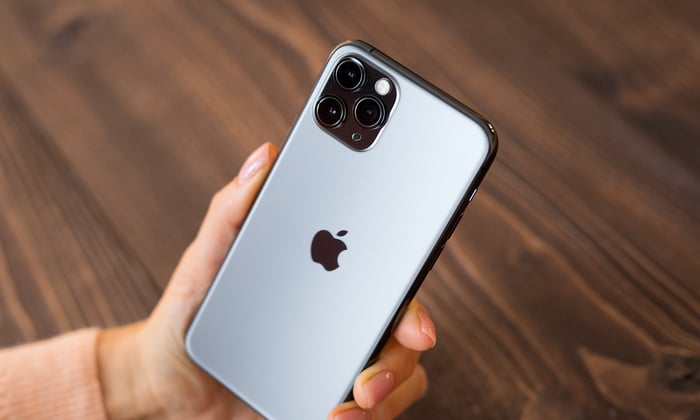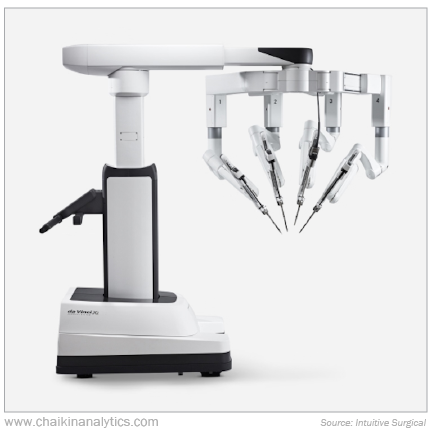“`html
Tariff Pause Boosts Tech Stocks, But Apple Faces Challenges Ahead
The announcement of a 90-day tariff pause with China has positively impacted tech stocks, pushing indexes higher. A notable advocate for this development is Dan Ives, a senior equity research analyst at Wedbush Securities, who labeled it a “dream scenario” for Apple (NASDAQ: AAPL).
But is this characterization accurate? It’s undeniable that the iPhone and the iOS ecosystem dominate the market, and a trade deal with China could enhance supply chain stability.
However, Apple recently lost its market cap lead to Nvidia, which is now closely trailing Microsoft at a capitalization of $3.35 trillion. A deeper examination of Apple’s situation raises questions about its value proposition. Investors need to assess whether Apple remains a viable buy.

Image source: Getty Images.
The New Case for Apple
Ives may be justified in his positive view of Apple given the current U.S.-China trade dialogue. Despite efforts to diversify, the iPhone accounted for 53% of Apple’s revenue during the first half of fiscal 2025 (ending March 29).
While Apple has initiated some manufacturing shifts to India, a significant portion of its iPhones is still produced in China. Consequently, any trade conflict could lead to challenging adjustments for the company.
Furthermore, Apple boasts approximately $157 billion in liquidity, positioning it for greater flexibility than most public companies, aside from Warren Buffett’s Berkshire Hathaway. This financial robustness empowers Apple to navigate potential disruptions, including a trade war with China. It also supports continued investments in innovation, particularly in artificial intelligence (AI) and other advanced technologies. Apple is already working on chips to enhance functionality for MacBooks, iPads, AirPods, and Apple Watches, ensuring its strong standing within the tech sector.
Signs of Trouble
Nonetheless, Ives’ optimistic view may not fully account for the significant issues that led Apple to relinquish its market cap lead.
Firstly, the current agreement with China is merely a 90-day tariff pause, not a comprehensive resolution. Investors should brace for the possibility that tariff discussions will resurface soon.
Additionally, while the $3.2 trillion company is expected to maintain its industry presence, signs of slower innovation have surfaced. Apple is on the verge of entering the smart glasses market, and enhancements to existing products might encourage customer upgrades. However, its position as a leader in AI is often overlooked, and the company has not fully replaced Steve Jobs as a key innovator, which could impact its competitiveness.
Revenue for the first two quarters of fiscal 2025 was $220 billion, marking a 4% increase. This translated to a net income of $61 billion for the same period, which is up 6% compared to the previous year. While these growth figures are positive, they illustrate that Apple is no longer the high-growth company it once was.
Finally, the valuation presents another concern. With a P/E ratio of 33, Apple is substantially more expensive than it was in the 2010s, when its earnings multiple rarely surpassed 20. Given the modest earnings growth and ongoing challenges, investors may question why Apple should command such a premium.
Should Investors Heed Ives’ Bullish Call on Apple?
In light of the current market conditions, investors might consider treating Apple as a hold. The tariff pause is a source of relief for the company, and its established product ecosystem suggests it will continue to play a significant role in the industry. Nonetheless, the lack of a permanent agreement on tariffs suggests that this issue could soon return to prominence.
Additionally, slow profit growth and the recent loss of its market cap lead are indicators of maturing within the company. Coupled with its reduced innovation pace and relatively high P/E ratio, investors should approach Ives’ optimism cautiously and avoid adding shares of Apple Stock at this time.
Should You Invest $1,000 in Apple Right Now?
Before making a decision to buy Stock in Apple, it’s worth noting that:
Recent recommendations from the Motley Fool analyst team featured what they believe are the 10 best stocks for investment presently, and Apple was not included in that list. The selected stocks could yield substantial returns over the coming years.
To illustrate, if you invested $1,000 in Netflix when it was recommended on December 17, 2004, you would now have $642,582.*Similarly, an investment of $1,000 in Nvidia at the time of its recommendation on April 15, 2005, would have grown to $829,879!*
Also noteworthy, the Motley Fool Stock Advisor has posted a total average return of 975%, which significantly outperforms the S&P 500’s 172%.
*Stock Advisor returns as of May 12, 2025.
Will Healy has positions in Berkshire Hathaway. The Motley Fool has positions in and recommends Apple, Berkshire Hathaway, Microsoft, and Nvidia. The Motley Fool recommends the following options: long January 2026 $395 calls on Microsoft and short January 2026 $405 calls on Microsoft. The Motley Fool has a disclosure policy.
The views and opinions expressed herein are the views and opinions of the author and do not necessarily reflect those of Nasdaq, Inc.
“`









